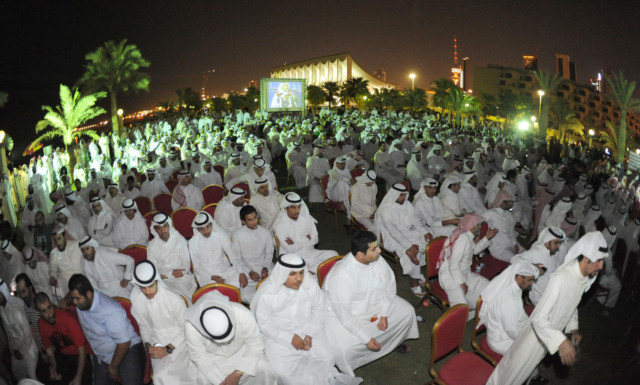
Manama: Thousands of Kuwaitis took part in a rally to protest possible amendments to the country’s controversial electoral law and to press for the dissolution of the recently-reinstated 2009 parliament.
In the absence of an independent figure about the turnout, organisers and supporting media said that around 10,000 people braved the evening heat on Monday to attend the rally at the Erada (Will power) Square in Kuwait City, while others put the figure at 1,500, saying they were “mainly relatives of the MPs and their office staff”.
The discrepancy reflects the deep sense of social and political unease prevailing in Kuwait over controversial constitutional and election issues.
In June, the constitutional court ruled that the decrees to dissolve the parliament elected in 2009 and to call for elections that were held on February 2 were unconstitutional.
The verdict, which could not be challenged, effectively dissolved the 2012 parliament and reinstated the 2009 legislative body. However, the reinstated parliament could not convene despite two attempts by its speaker Jasem Al Khorafi who referred the matter to the Emir.
Earlier this month, the cabinet referred the 2006 electoral law to the constitutional court to review the constitutionality of the article dividing Kuwait into five constituencies. The government said that it wanted to end all legal loopholes and ensure a fair representation of various demographic sectors in the parliament.
The law promulgated in 2006 divides Kuwait into five electoral constituencies, down from 25 previously, and opposition figures have said that any changes introduced by the constitutional court would limit their prospects and boost opportunities for the government in future parliamentary elections.
The opposition insisted that the move to refer the electoral rules to the court amounted to a coup against it and pledged street action to force the government to reconsider its moves.
“We reject the 2009 parliament which has no popular, political or moral support and we refuse that the government has the monopoly to amend the constituencies without the participation of the parliament,” opposition figures said at the rally on Monday. “We also reject any role for the courts in political issues and we want a fully integrated parliament and a single electoral constituency.”
However, Maasooma Al Mubarak, one of the four women lawmakers elected in 2009 in an unprecedented achievement for local women, charged that people who participated in the rally “had their own agenda”.
“The people do not follow them and have kept their distance from their demands,” she told local Arabic daily Al Kuwaitiya. “Most of the people are worried about their moves and we pray that God will protect Kuwait from them. They claim that they are partners in ruling the country and that is not true. They do not represent us,” she said.
Earlier, Al Khorafi dealt a blow to the claims made by several lawmakers from the 2009 parliament that they had resigned and that they did not want to be part of “a corrupt legislative body”.
“Only three people have resigned while the others are still enjoying the benefits that come with their responsibilities, including salaries, cars and other perks,” he said in a statement.
Kuwait boasts the oldest parliament in the region.










